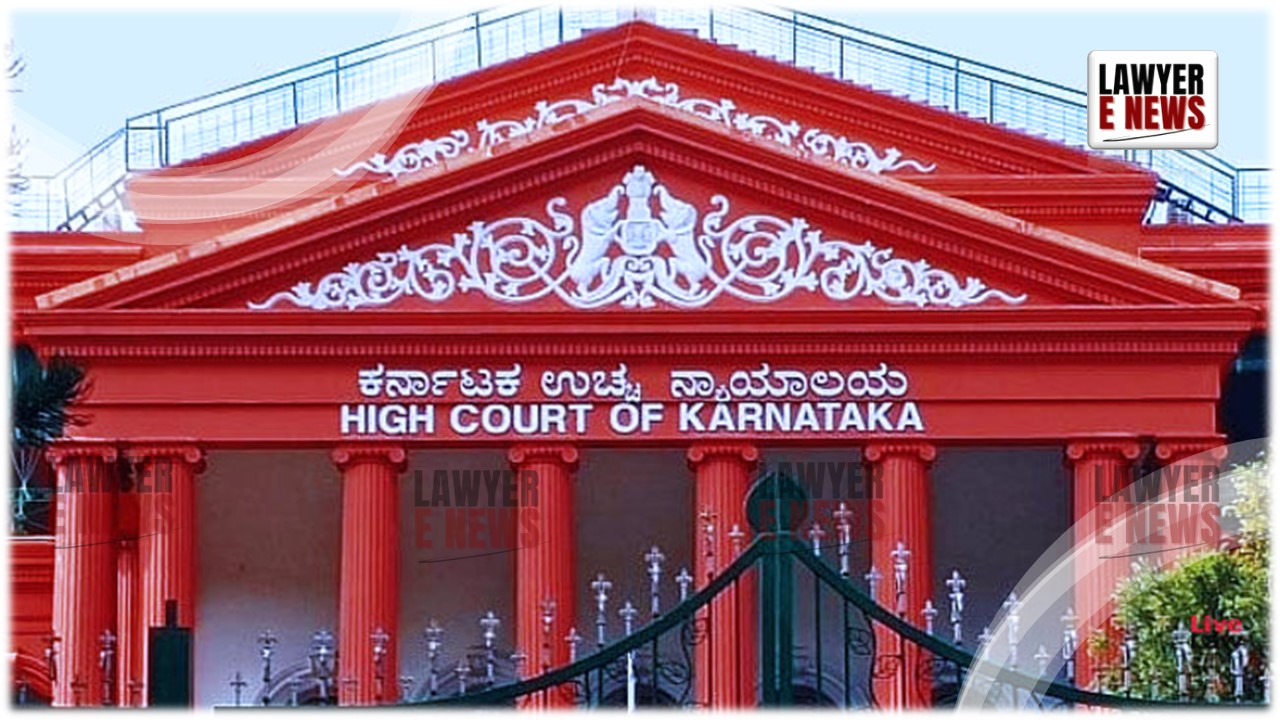-
by Admin
15 February 2026 5:35 AM



"Locus to File Complaint Essential for Validity," Rules Karnataka High Court
The High Court of Karnataka has quashed a professional misconduct complaint against Advocate Paras Jain, emphasizing the necessity of proper complainant locus. The judgment delivered by Justice M. Nagaprasanna on June 7, 2024, underscored the legal requirement for the complainant to have a legitimate interest in the matter, per Section 35 of the Advocates Act, 1961.
Paras Jain, an advocate with 44 years of practice, represented the decree holders in Execution Case Nos. 458 and 459 of 2007 against the second respondent, A. Ramachandra Reddy, who was the Judgment Debtor No. 3. The decree had been finalized after multiple appeals were dismissed, culminating in the delivery of possession of the disputed property to the decree holders in 2021.
Subsequently, Reddy filed a complaint with the Karnataka State Bar Council, alleging professional misconduct by Jain, based on Jain's involvement in a partition suit (O.S.No.6629 of 2017) where he secured a portion of the property as part of a compromise decree. The Bar Council issued a notice to Jain on July 22, 2023, initiating disciplinary proceedings.
Justice Nagaprasanna stressed the importance of the complainant having a legal right or interest in the matter for a complaint under Section 35 of the Advocates Act. The court noted that the complainant, in this case, was the judgment debtor, not a client of Jain. Therefore, he lacked the requisite locus to file a professional misconduct complaint. "The complainant must have a direct and legitimate interest in the matter," the court observed, emphasizing that the complaint should have been filed by the decree holders if there were any grievances.
The court highlighted the statutory requirement for the Bar Council to have "reason to believe" that an advocate has committed misconduct based on relevant materials. Justice Nagaprasanna remarked, "The Bar Council must apply its mind to determine the existence of such reasons, avoiding arbitrary or irrational actions." In this case, the Bar Council's actions were deemed invalid as the complainant did not meet the criteria for initiating proceedings under Section 35.
The judgment referenced several precedents, including the Supreme Court's rulings in Ayaaubkhan Noorkhan Pathan v. State of Maharashtra and Bharat Lal Pandey v. Ramji Prasad Yadav, which elucidate the need for a complainant to demonstrate a legal injury or direct interest. The court reiterated that a passer-by or unrelated party cannot file a complaint unless they are directly affected by the advocate's conduct.
Justice Nagaprasanna remarked, "A professional misconduct complaint must stem from an aggrieved party with a legitimate interest. Allowing unrelated parties to file such complaints would lead to frivolous and vexatious litigations, undermining the integrity of the legal profession."
The High Court's dismissal of the complaint against Paras Jain reaffirms the judiciary's commitment to ensuring that complaints of professional misconduct are initiated by those with a direct and legitimate interest. This judgment reinforces the legal framework, preventing misuse of the complaint mechanism and protecting advocates from baseless allegations. The decision is expected to impact future cases, emphasizing the necessity of proper complainant locus in professional misconduct proceedings.
Date of Decision: June 7, 2024
Sri Paras Jain v. Karnataka State Bar Council and Another
